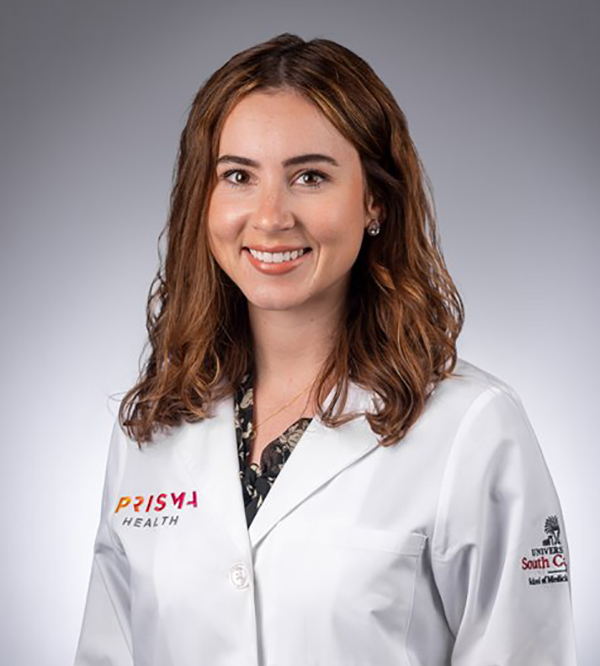
Abigail Harrison, DO
Abigail Harrison, DO, is a resident at University of South Carolina Family Medicine Program in Columbia, SC. She is a 2025 recipient of a STFM Foundation Faculty for Tomorrow Resident Scholarship.
Dr Harrison's Family Medicine Story
Why are you interested in teaching family medicine?
Dr Harrison: From the beginning of my journey into medicine, I faced a challenge—I had no family or friends in the field. Without clear guidance, navigating the complexities of medical education and understanding the inner workings of various specialties felt daunting. That is until I encountered mentors who shaped my understanding of medicine and opened my eyes to the world of family medicine. These mentors were not only a lifeline but also a source of inspiration, and they ignited a passion in me for teaching and mentorship within the field. Now that I have almost completed my residency training, I am deeply committed to paying forward the mentorship that was so critical in my own development.
One of the aspects that excites me most about family medicine is its remarkable versatility. Unlike any other specialty, family medicine allows physicians to tailor their practice to their personal interests or the specific needs of the community they serve. Whether it’s focusing on obstetrics, sports medicine, geriatrics, or even incorporating procedural skills, family medicine has the unique flexibility to evolve with a doctor’s passions and community demands. Teaching in family medicine also offers a unique opportunity to guide students and residents through these possibilities. They can create a career that aligns with their passions while making a real impact in their communities. As a teacher, I aim to be that mentor I once sought, providing students and residents with the guidance, encouragement, and knowledge to explore all that family medicine has to offer.
For me, teaching in family medicine isn’t just about transferring knowledge—it’s about inspiring students to see the full scope of what they can achieve. I want to help them understand that family medicine is a career that evolves with you, giving you the ability to impact the lives of both individuals and entire communities. Just like my mentors did for me, I want to be there to guide and support them on their own journeys.
How do you think you can make a difference in the future of family medicine?
Dr Harrison: I believe that my passion for family medicine combined with my commitment to advocacy and mentorship positions me to make a meaningful impact on the future of the field. One way I see myself contributing is through the leadership roles I’ve already embraced. As the resident delegate for the South Carolina Academy of Family Physicians (SCAFP), I had the privilege of representing my state on a national stage at the AAFP National Conference. This experience taught me the importance of using my voice not just for my own development but to advocate for my patients and my colleagues. I’ve never shied away from being vocal when it comes to standing up for what I believe in, especially when it concerns the well-being of my patients or the future of family medicine. I’m confident that continuing to engage in leadership and advocacy efforts will allow me to influence policies that shape the future of our specialty.
Another way I plan to make a difference is through mentorship. Mentorship has been a constant throughout my career, and it is something I am deeply passionate about. From mentoring high school students interested in medicine to guiding pre-med students during medical school and now supporting medical students as a resident, I’ve always made it a priority to seek out others to mentor. This role has been incredibly fulfilling, and I see it as a way to pay forward the guidance I received throughout my own journey. By helping others navigate their paths in medicine, I hope to inspire the next generation of family physicians to embrace the versatility, compassion, and community focus that make family medicine so special.
Ultimately, I believe that by staying active in both advocacy and mentorship I can help shape a future for family medicine that is patient-centered, adaptable, and inclusive. It’s an exciting time for the specialty, and I am ready to contribute to its growth and development.
Contribute to the Creation of the Next STFM Story
Transforming the future of family medicine would not be possible without the generosity of countless STFM members and supporters. Through both member and departmental donations, the STFM Foundation is able to support the pipeline for academic family medicine.
Help transform the future of academic family medicine by donating to the STFM Foundation. If you have questions about the STFM Foundation, contact Mindy Householder at (800) 274-7928 or mhouseholder@stfm.org.




